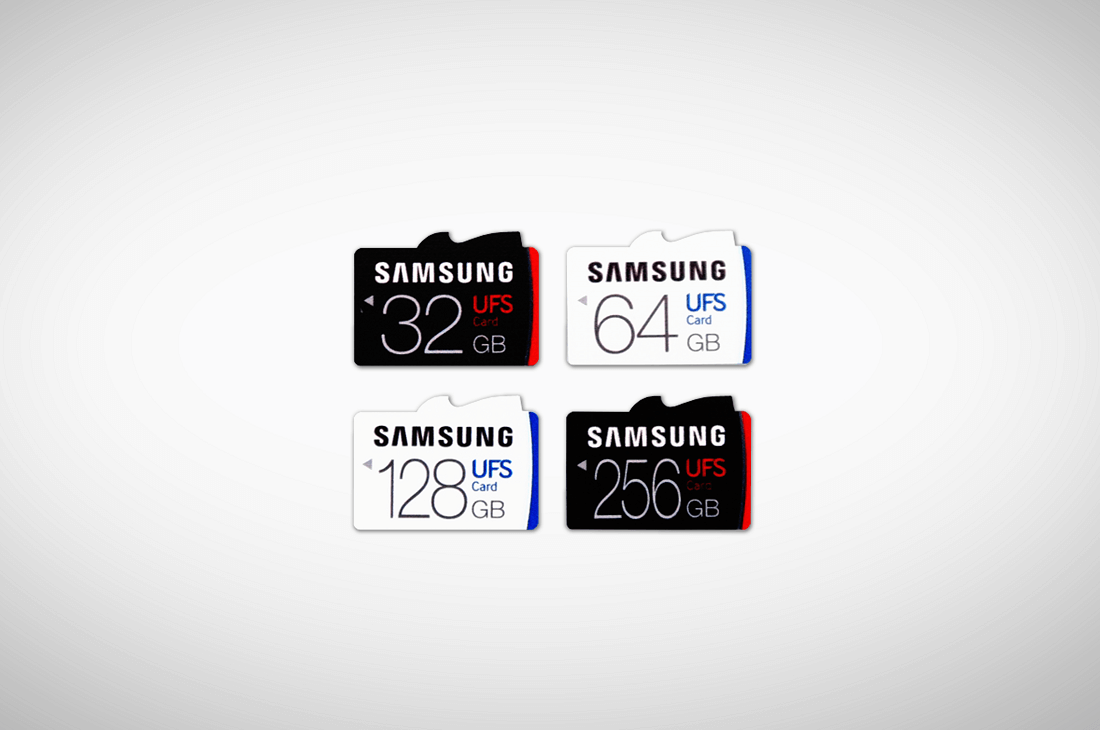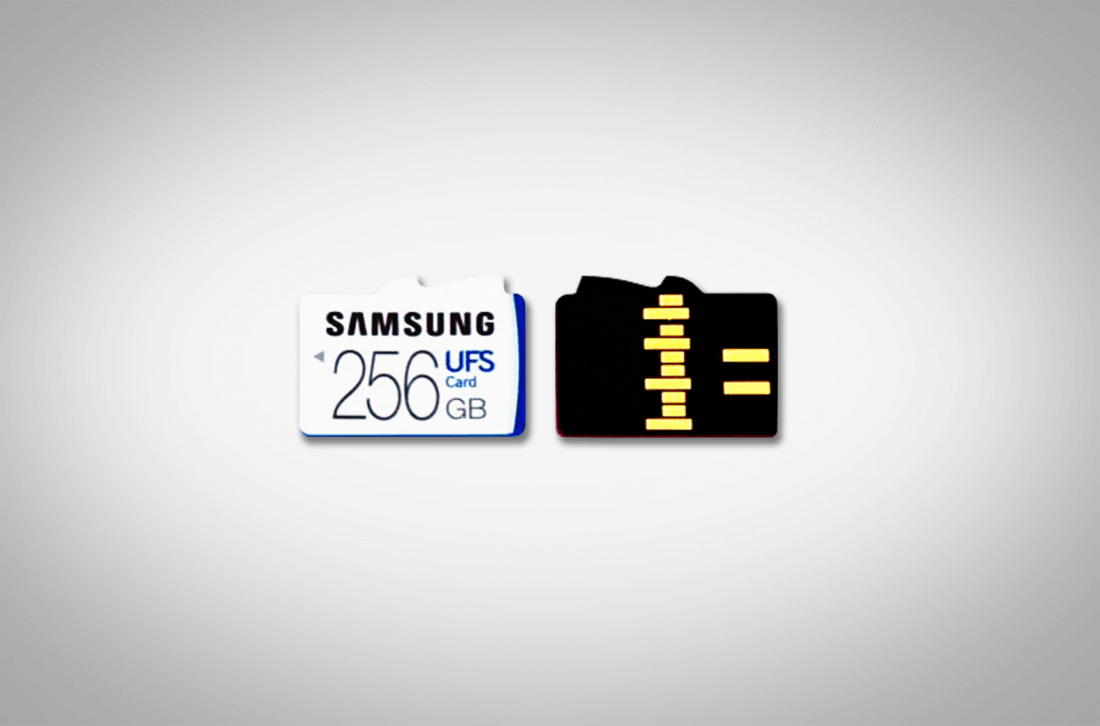
With more people capturing high-resolution footage on their devices, there’s an increasing requirement for faster removable storage options. Step forward Samsung; the company has just announced the world’s first removable Universal Flash Storage (UFS) memory cards.
The Korean company is offering the cards in 32, 64, 128, and 256 GB capacities. The largest of which offers sequential read speeds of 530 megabytes per second – a performance on par with many SSDs, making it about five times faster than today’s best microSD cards.
Samsung said that the card will be able to read a 5GB, full-HD movie in around 10 seconds, whereas a typical UHS-1 microSD would take over 50 seconds. Moreover, the UFS card’s random read rate of 40,000 IOPS (input / output operations per second) is 20 times higher than that of a typical microSD.
The card is no slouch when it comes to write speeds, either. At 170 MB/s, it’s almost twice as fast as top-end microSD cards, allowing a DSLR camera to save 24 pictures (around 1120MB) in less than 7 seconds as opposed to 32 seconds. And its random write rate of 35,000 IOPS is a massive 350 times higher.

Samsung first launched an embedded UFS chip with a 128GB capacity back in January 2015, and it started mass-producing 256GB embedded chips for mobile devices in February this year. But at the moment there are no consumer products that support the new removable UFS cards.
The Verge notes that while the cards do look similar to a microSD, the new pin configuration on the back is non-compatible.
There’s still no word on price or release date. Samsung may be holding the UFS cards back until the arrival of compatible devices, the first of which could be the Galaxy Note 7.
https://www.techspot.com/news/65492-samsung-unveils-256gb-ufs-memory-card-five-times.html